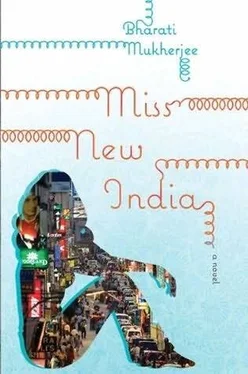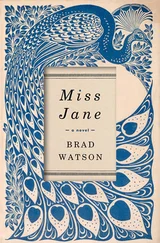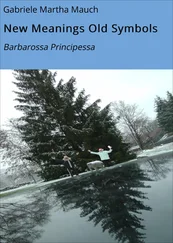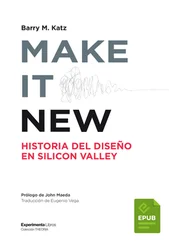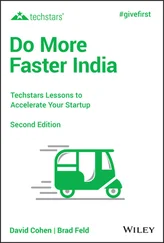"Two daughters!" Mrs. Bose wailed. "No jamais!"
After Anjali's final English conversation class-tuning up for interviews, she told her parents; prepping for Bangalore, she told herself-she informed Peter that this visit was to be her last class, her last public appearance in jeans and a T-shirt, her last day as a student. After all, she had a marriage-worthy English proficiency certificate, first class. Peter asked if she was perhaps having a bovine interlude.
"A what? " she asked, and he stared back.
"Cowlike," he said. But she'd turned down thirty-five potential suitors, a few of whom under different circumstances might have been worthy of a follow-up; that could hardly be considered cowlike. But Peter showed no interest. She assured him that Bangalore was in her plans; she was only testing the waters, placating her parents.
He said his offer of help-meaning money as well as contacts, she wondered-for Bangalore was waiting, but it had an expiration date.
"When?" she wondered aloud.
"Soon," he said. "All right," Peter said, "one bonus private English lesson before Bangalore. Do you like poetry?"
She didn't, but she knew the proper answer.
"I want you to read this, and then recite it."
Even the title confused her. "What is a rawen?" she asked. How could she read it if she didn't know what it was?
"A raven is a big black bird like a crow that can get an Indian student hired or fired," he said. "You just said 'ray-wen.' Try again."
She got it on the second try, and didn't mess up on "weak and weary."
"Good," Peter said. "You aren't too out of practice, Angie."
And then she was hopeless on "Quoth the raven, nevermore!" Two th's in a row? Back-to-back middle v's? She could cry. But Peter just kept tapping his pencil like a music teacher, muttering "Again, again" until, exhausted, she got it right.
TWO DAYS LATER, shopping with her mother for mangoes and oranges, she spotted Peter at the outdoor market. She was about to lift her arm and signal, but no, she couldn't, not in a sari, with jingling gold bracelets. Angie-in-sari was Anjali, a stranger to her student self.
And she thought, just like a hundred generations of potential brides had thought before her, why all this talk of new sisters and new brothers and a new house in a new city and not a warning about a new mother-in-law to ridicule her while her new husband sits back and criticizes her sloppiness and cooking? Her promised resurrection into the state of marriage would be little different from her mother's and grandmother's, except that she had education and ambition, Bangalore-and Bollywood-size expectations and a wealth of ready-made suspicion, thanks to her sister's fate.
In the months as a full-time bridal candidate, she finally grasped enough of the world to place Peter and Ali in a kind of murky marital matrix. And to think, not long ago, she'd imagined herself in Ali's role as Peter's beloved. It was all fascinating, and just a little sickening. And with the revelation of Peter and Ali came dozens more complications, as though they'd all been lined up, waiting for her to open the door and see with fresh eyes: new combinations, weird embraces, convoluted sexual dimensions with higher peaks of improbability and deeper, more complicated valleys, like the wrinkly march of the Himalayas across Nepal.
It took three hours of sitting in a crisp silk sari at Sengupta's Marriage Portrait Studio, WHERE DESIRABLE DAUGHTERS MEET THEIR MATES, Gauripur's center of marital entrapment for the dwindling community of Bengali girls. When old Shaky Sengupta had been a younger, steadier-handed roaming photographer without a back-alley studio, he'd taken Anjali's grandmother's photo, and then her mother's, and even the garlanded marriage photo of her parents that still sat in the middle of the bedroom dresser.
She was posed at a table in front of a Qantas poster of the Sydney Opera House, which could be replaced by All Nippon Airways pull-down screens of Mount Fuji and the Ginza district in Tokyo for additional shots; finally she was seated at a bistro table, with an unwashed espresso cup, in front of a Toulouse-Lautrec poster. The espresso cup had recently held sweet coffee. A fly struggled to escape the sticky residue. She kept her face a mysterious blank, saw that her silk sari remained uncreased, and allowed herself only five-minute breaks to dab the perspiration from her upper lip.
A British-era thermometer advertising Pond's cold cream read 121 degrees.
A tall young assistant lugged lights and reflectors. She tried to radiate allure from an imagined alpine café under a Martini & Rossi umbrella, with the Matterhorn in the background, while Shaky Sengupta, the palsied photographer, patted her face with tissues and tried to tease a dimple from a smile she could barely force.
"Never mind, I put in dimple when I take out frown," he said, in English. "Dimple very popular."
Shaky Sengupta and his diminishing breed of Indian marriage photographers shared a total disregard for truth, passion, or integrity. Which is to say they were ideal enablers in the inherent duplicity of the marriage arrangement. Every girl was fetchingly beautiful in a prescribed manner. The camera and its expressive potential worked more like a shovel. The art was in the touch-up: slimming down the dumplings, puffing up the ironing boards, inflating bosoms, enlarging eyes, straightening teeth, and moistening lips.
The young assistant caught Anjali's attention. He was extremely tall and thin, wearing blue jeans and a plain light-blue T-shirt. He moved with grace and competence, and his Bangla was even worse than hers. It was he who set up the shots, arranged the reflectors, and measured the focus, doing everything that Shaky in his earlier years might have been able to do by himself.
When he bent down to clean out her espresso cup, he said, "Studio sessions really suck, don't they?" His accent was pure American, without Peter Champion's decades in India to soften it. He had the longest, most delicate fingers she'd ever seen on a man.
"What did you say?"
A convincing American accent, easy enough to acquire these days in India though not in Gauripur, didn't give him the right to flirt with a paying customer. His major duty was to tell her how beautiful she looked. Instead, he was standing with his hands on his hips, insolently separating her from the pull-down screen of cherry blossoms on snowy Mount Fuji.
"What are you trying to prove?"
Now he'd insulted her in her zone of grace, fresh from the beauty parlor, in her uncreased silk. Indignantly, she answered, "I'm not trying to prove anything." She could feel the heat rising. "Just that I'm a worthy bridal candidate."
"No, you're not. Your heart isn't in it."
"My heart has nothing to do with it. It's just a marriage photo. You're not wearing a silk sari without a fan. It must be fifty degrees under the lights!"
She saw him glance at the thermometer. So, she figured, he needed a metric-system equivalence; he might really be American. He stepped behind Mount Fuji and returned with a metal cup of cool water. As she gulped it down, he confronted the mountain. "Everything's so fake, we ought to go with the joke." He tugged down on the screen and the mountain partially rolled up, exposing other rolls of tourist posters, ladders, and chairs behind them. "Voila!" he said. "The Wizard of Oz." She decided on the spot that he was a very kind, very funny boy. Was he available?
"Everyone knows I'm in a hot little studio and the mountain is just a prop."
" Exactly! You're sitting like a corpse in a formal sari in front of a fake landscape. So if everyone knows they're fake, you should show you're in on it. A meta-marriage photo! You'd be the coolest, heat or not."
Читать дальше
